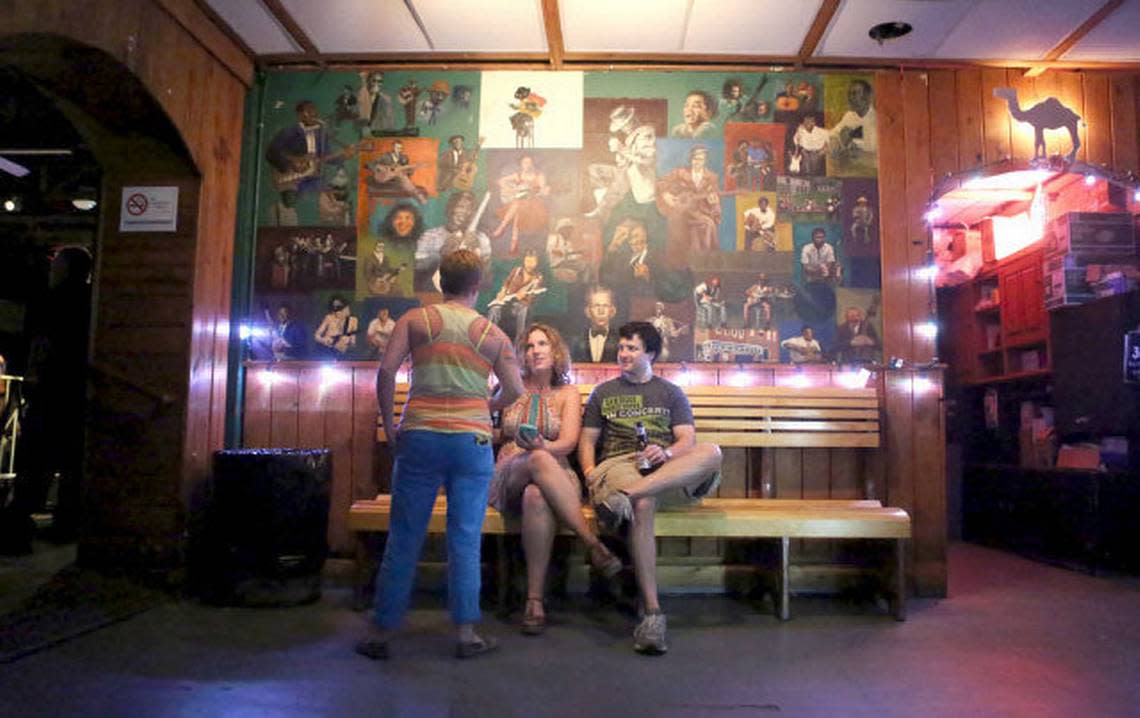Rezoning recap: What’s happening with Seaboard Station, North Hills and Berkeley Cafe
Community members and developers reached a compromise to allow a rezoning request at the historic Seaboard Station to move forward.
The Raleigh City Council approved a rezoning Tuesday afternoon to build up to 20 stories on about 3 acres on Semart Drive.
Turnbridge Equities agreed to move the historic train depot or preserve at least half of the building facade. The developers may also remove the building and document the structure but the building height would then be capped at seven stories, the current height entitlement.
“This compromise was not easy, and it adds additional risks to Turnbridge, but in the end, it responds with what the community asked us to do,” said Jamie Schwedler, the developers’ attorney. “It responds to what you asked us to do. And we appreciate the Save the Station group indicating that this was the step we needed to take in order to get more support.”
Dana Seaton, speaking for the community group, said they worked on a compromise for nearly a year.
“We hope that Raleigh citizens will be reminded of these preservation efforts every time they visit the Seaboard area, and learn about our local history,” she said. “And we hope that future preservation efforts can be more successful at convincing property owners to place buildings on the historic registry or historic landmark list before selling them. So more of our historic buildings are not lost.”
The historic train depot currently houses Logan’s Garden Shop and did not have local or national historic designations that would have protected it by default.
Council member David Cox voted against the rezoning because it did not preserve the entire station. He also asked that the city accept ownership of the station.
None of the other council members responded to him.
“I don’t want his comments to distract from the good work that was done by the group, the Seaboard group and the developer,” Mayor Mary-Ann Baldwin said after the meeting. “They reached a consensus and a compromise. And I mean I’ve never seen anything quite like this before. So I think they did a great job.”

Berkeley Cafe
Historic preservation ran through the rezoning cases before the City Council.
Raleigh leaders held off on a request to rezone less an acre of downtown property at 303 S. Dawson St., an empty lot, and 217 W. Martin Street, the Berkeley Cafe.
The property is currently zoned for up to 20 stories and there were plans to build a hotel on the empty lot next to the Berkeley Cafe. This rezoning request combines the two lots and is seeking up to 40 stories with no identified plans for the property, said Molly Stuart, the attorney representing the developers.
“We considered the possibility of excluding that parcel, but all that would have done would have been to reduce the uses that are possible in this site, (which) again, are surrounded by 40 stories,” she said.
The Raleigh Historic Development Commission voted to recommend the rezoning be approved but with conditions “protecting the contributing historic building” where the Berkeley Cafe is located. A zoning condition offering to document the building and provide it for historic preservation is included in the rezoning.
Alex Little, one of the owners of the Berkeley Cafe, spoke against the rezoning request. Their lease on the property ends in November, and while they have sought an extension, potential new buyers want them out.
“We’ve been told to move out by Nov. 30 because we are inconvenient and they want to use it for storage,” Little said. “And it’s very frustrating here. What do real estate developers in Madison or in New York City know about living in Raleigh? They don’t live here. They don’t even want to visit here. But they just want to come and make money off of us and tear down or historic buildings.”
The two different issues are the preservation of the building, which has housed a cafe or restaurant for over 100 years, and the preservation of the Berkeley Cafe, said Council member Jonathan Melton.
“I’m really sorry to you because I don’t think there’s much we can do to help you on that piece of it,” he said. “But from preserving the building piece, that’s where we have, I think, a little flexibility with the conditions.”
Baldwin asked the developers to give some consideration to the Berkeley Cafe, especially if nothing is going to be built on the property immediately.
“It’s frustrating to spend years building a business, just to have this out-of-town money come in and buy up our properties, and then just run our small businesses out,” Little said.
Other rezonings
The controversial plans to rezone part of North Hills to allow up to 30 and 40 stories was continued again. No new zoning conditions were filed, and the case is being referred to the City Council’s Transportation and Transit Committee. A date for that meeting has not been set.
A rezoning request for 275 acres at the intersection of Rock Quarry Road and Whitfield Road was continued for two weeks. If rezoned, a majority of the property would allow eight units per acre with a smaller part of the property including mixed-uses going up to three stories.
Raleigh leaders approved a rezoning on nearly 5 acres to allow up to 20 stories in the Depot Historic District in downtown Raleigh. The property, owned by the North Carolina Railroad, includes the long warehouse building that’s home to shops like the Videri Chocolate Factory, and the property across the train tracks. Zoning conditions include the preservation of the historic Head House, which houses Videri.
